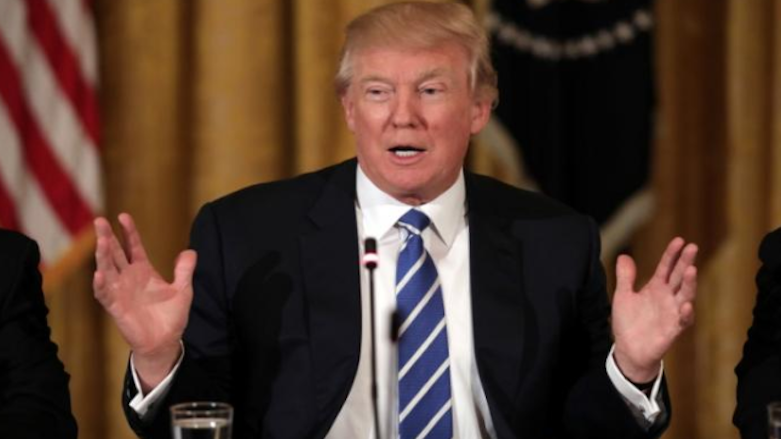Tough US Position Emerging on Iran, Islamic State

WASHINGTON DC, United States (Kurdistan24) – A tougher US posture toward Iran and the Islamic State (IS) is emerging, as President Donald Trump’s national security policies start to take shape in his second month in office.
On Wednesday, America’s UN ambassador Nikki Haley affirmed a key US objective in ending Syria’s civil war was to ensure the country “no longer be a safe haven for terrorists,” adding, “we've got to make sure we get Iran and their proxies out” of Syria.
In remarks to the Senate Armed Services Committee on Thursday, General Joseph Votel, head of US Central Command (CENTCOM), stated, “Iran poses the greatest long-term threat to stability for this part of the world.” That threat includes Tehran’s "malign influence across Iraq and Syria,” according to the General.
In a lengthy, prepared statement, Votel observed, “While the [Hashd al-Shaabi] are achieving some positive effects, their participation does present challenges, particularly post-Mosul.” He affirmed, “Iranian-backed elements . . . seek to increase their influence through both military and political channels.”
Until now, the US military has refused to acknowledge that the Hashd al-Shaabi might pose a problem, adhering to the reassuring pretense the armed Shia groups operate under Baghdad’s command and control.
In a press briefing Thursday, the State Department’s Acting Spokesperson, Mark Toner, averred there had not been any change in US policy. “We’ve consistently raised our concerns about the destabilizing nature of Iran’s activities in the region” and “certainly in Syria,” he said.
However, before Haley’s statement, no US official had explicitly stated that eliminating the presence of Iranian proxies in Syria was a fundamental objective of US diplomacy.
The priority that Trump places on combatting another archenemy, namely IS, was reflected in one of his first acts in office: his direction to the Defense Department to lead a 30-day review on how to defeat the terrorist organization more quickly and decisively.
That review was completed and sent to the White House on Feb. 27, but it remains classified. Few details have emerged.
However, on March 22, the State Department will host a meeting of “foreign ministers and senior leaders” of the Global Coalition against IS, according to a press statement the Department issued on Thursday.
The coalition now includes 68 members. Will a representative from the Kurdistan Regional Government (KRG) be among those attending the conference?
Kurdistan24 asked the State Department spokesperson that question. He responded by praising the Kurds and their contribution. Nonetheless, he maintained that the decision was up to Baghdad.“
“We are very appreciative and aware of the sacrifice and effectiveness of Kurdish forces in the fight against [IS],” Toner said. “Our Special Envoy Brett McGurk has frequent conversations with Kurdish leadership on the ground,” he added. “So we believe they’ll be represented here by the Government of Iraq.”
In a meeting of the anti-IS coalition last July, KRG representation was minimal. At the last minute, Baghdad did agree to Kurdish representation, but Iraq’s consent came so late that time did not allow any senior KRG official to travel from Erbil. Therefore, Kurdish representation was limited to the head of the KRG’s Washington mission who attended as an observer.
However, relations between Erbil and Baghdad have improved considerably since, above all, as a result of their joint efforts to defeat IS in Mosul. Hopefully, KRG representation will prove more meaningful this time.
Editing by Delovan Barwari
